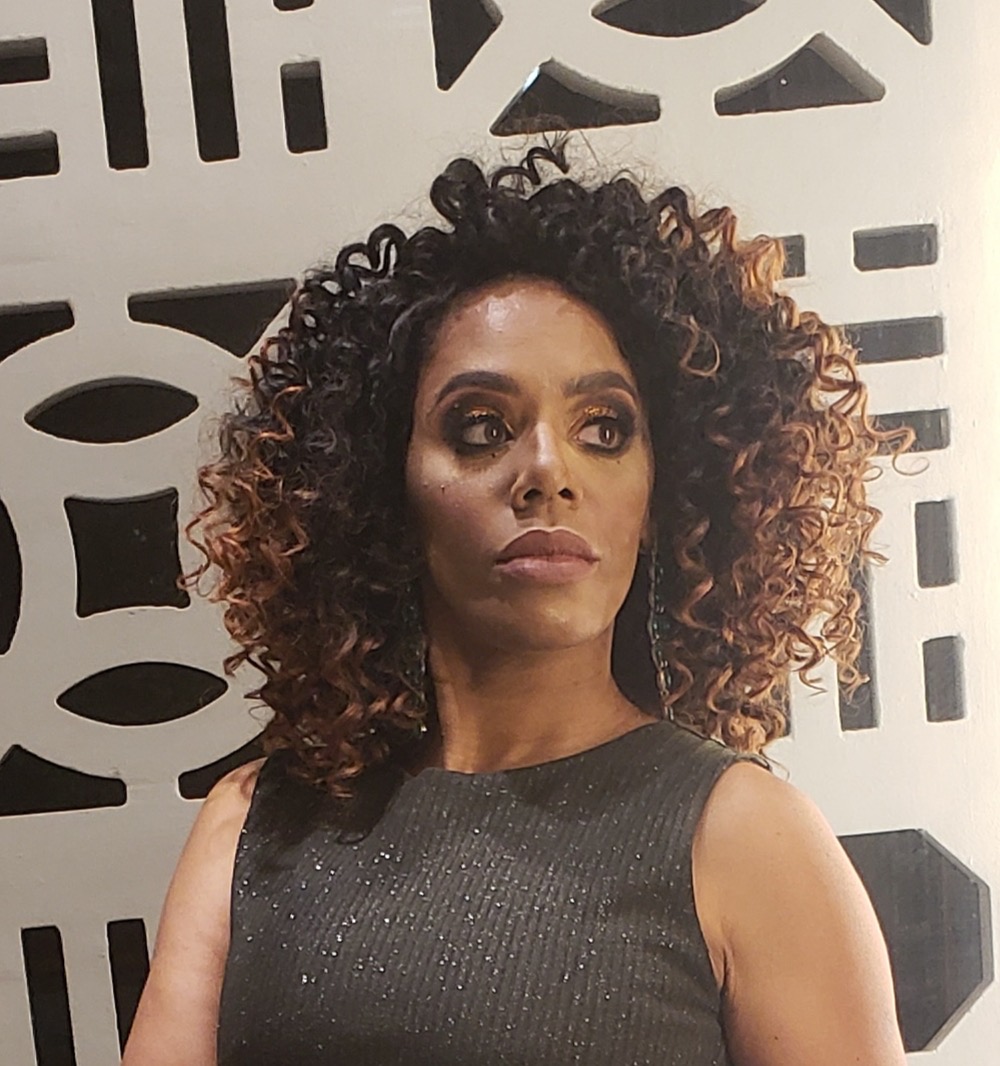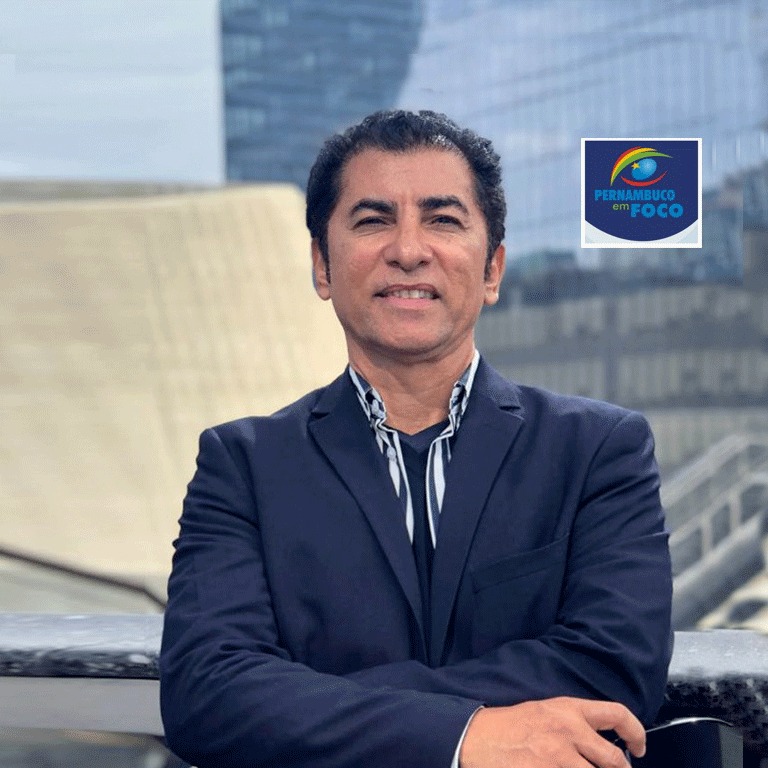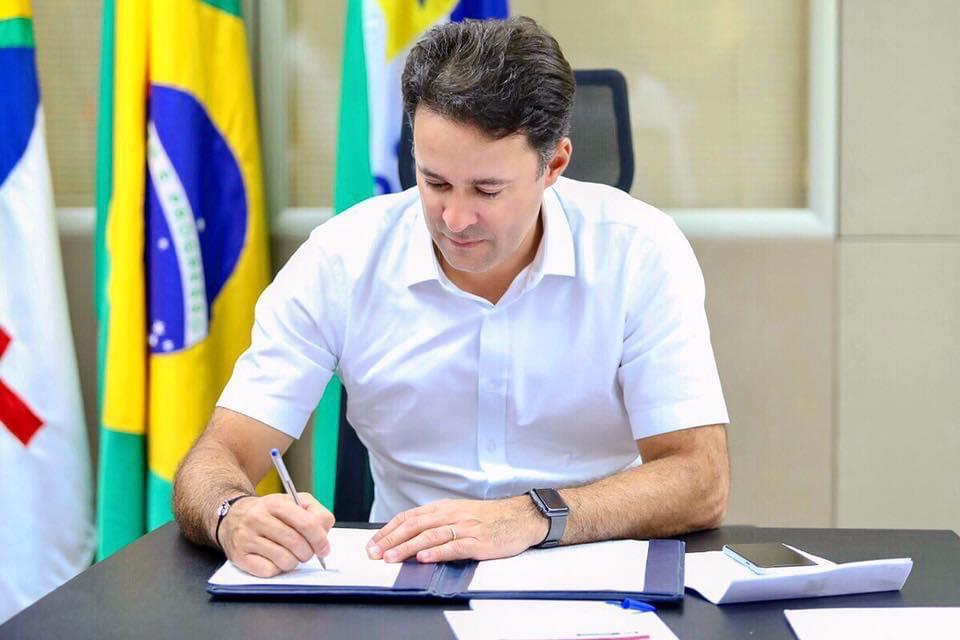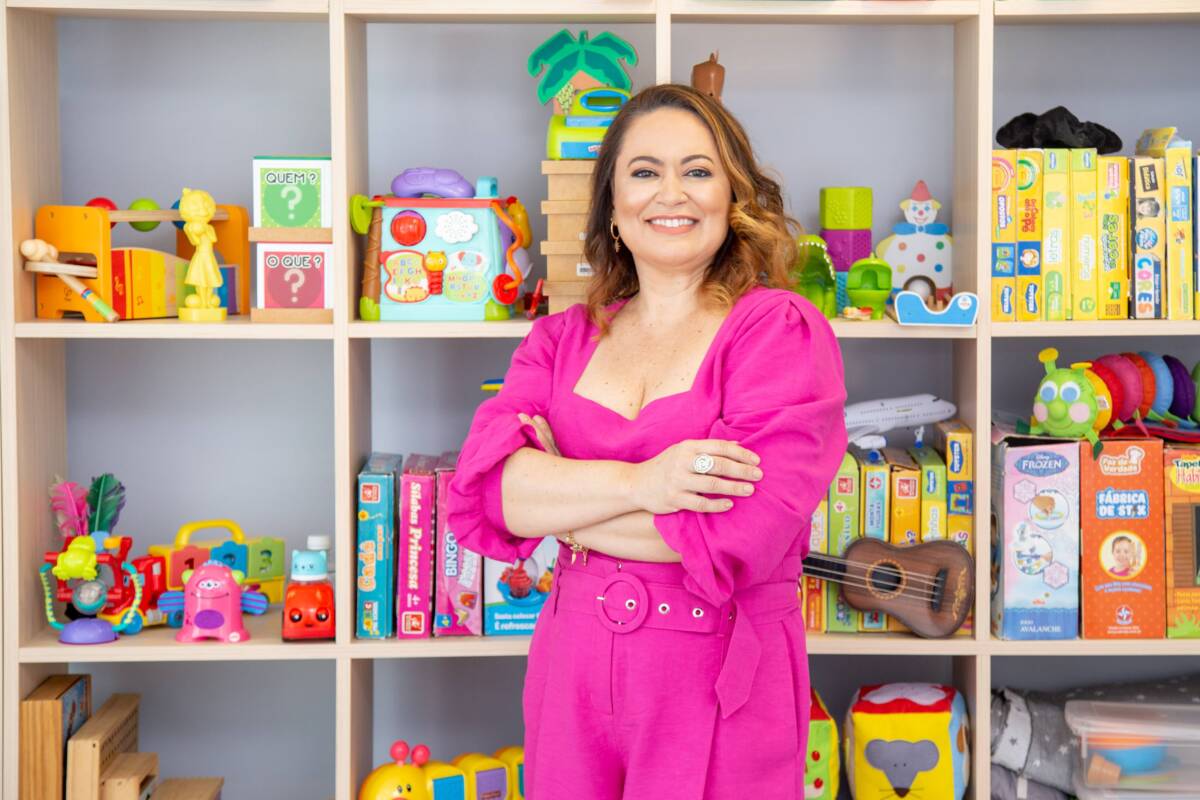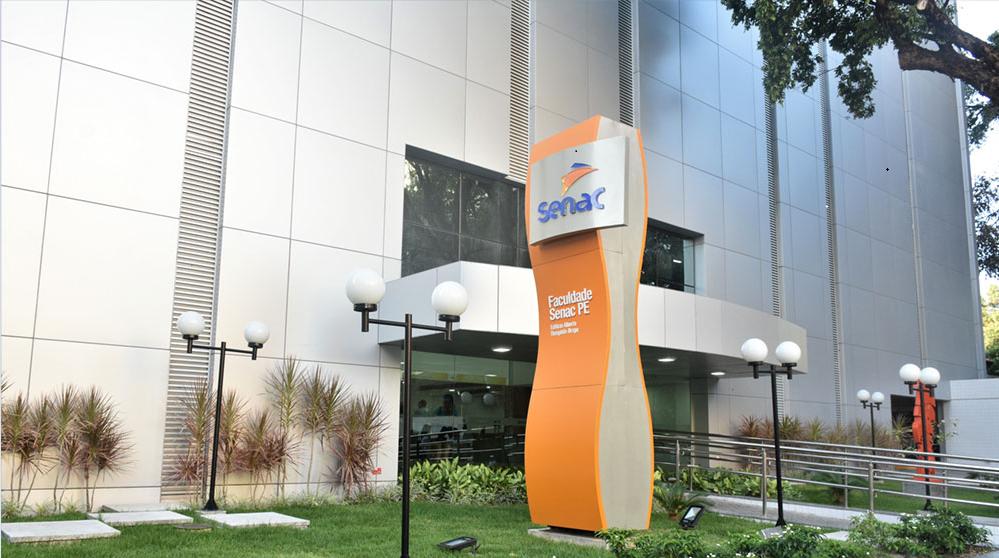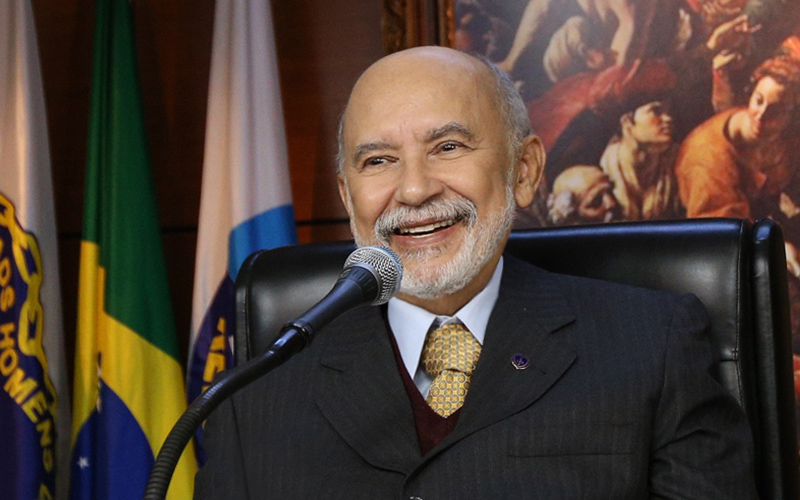From Brasília, the capital of Brazil.
The professionals in education and teaching are in a hurry to adapt themselves to remote platforms, all to serve families, students, and the country.
Today I present to you another protagonist of the ONBOARD DIARY series. You should know that many of them, here in Brazil, are working more than eight hours a day, even in the weekends, to carry out their duties in this new pandemic reality.
Thank you Andreia Bombom, Gevani Silva, Shophia Bittencourt, Katia Silva, Kennya Fernandes, for making some of your sinful time and work available and willingly cooperating with this proposal.
Education and teaching transform people and countries, which allow themselves to be educated and taught!
With you, ANDREIA FERREIRA BOMBOM, principal of a public school, in her kind interview:
JV: How do you describe yourself?
AB: I am Andréia Ferreira Alves, known in the school environment as “Bombom”. I have been a public school principal since 2012, at the Elementary School 17 Center, in Taguatinga, a satellite city of Brasilia, Federal District, Brazil. I have a degree in Letters, with a specialization in the School of Management and Administration. Therefore, I am an agent directly involved in the education and teaching process.
JV: How do you describe your new normal, or new reality as principal, since RESET, which caused the pandemic in the education and teaching process, forcing the change from face-to-face classes to virtual classes, via remote platforms?
AB: We were all in dismay, watching the news, talking about a new virus that is ravaging the world. The scenery is scary! Thousands of dead, corpses in cold rooms, economic failures, questioning of humanitarian policies.
On March 12, the birthday of my first-born, the first decree came out and classes were interrupted in Brasilia, the capital of Brazil. In the first days the WhatsApp message boxes were full, with everyone looking for information that in the first days, the teachers did not have.
Teachers and educational personnel were placed in a home office regime, students were momentarily left without formal contact, waiting for news of a mechanism that could help them. We, in the direction of the school, decided to continue working in the face-to-face every day, to better serve the local community.
JV: How do you assess the importance of your role, for the formation of the character of the students and for the process of education and teaching?
AB: The school principal is a leader. In my case, I consider teenage leadership somewhat challenging, which stretches me every day, sometimes to the point of extension. In this phase of student life, we work with doubts, fears, contradictions, uncertainties, but we also work with energy, vivacity, plurality, dreams, creativity, and, therefore, continually reinventing and seeking to evolve.
For all these changes, students look for someone who is strong, able to resist when structures collapse. Someone who can listen to them, understand without judging them. I hope they find these characteristics in school principals because that’s what I do.
JV: How do you perceive the reality of students and families, in relation to the RESET caused by the pandemic in the educational and teaching process?
AB: The pandemic brought unexpected approaches and separations to the school environment. The reality is more diverse than imaginable. There are families without material resources, others without food; students who come from institutions that shelter young people with violent behaviors; adolescents at socioeconomic risk. For those who do not have the means to follow the virtual classes, printed activities are offered instead.
JV: How do you perceive the adaptation of teachers, educational advisers, supervisors, and students, to the RESET that the pandemic gave in the education and teaching process?
AB: In the last four years, our school has started a project that renewed the pedagogy of the institution. I studied the teacher’s difficulties a lot and strengthened pedagogical coordination, we equipped the school so that the requirements were in accordance with the working conditions. Every beginning of the year in the pedagogical week, the team of teachers, coordinators, already understand that it is necessary to instrumentalize themselves.
When the RESET arrived, we knew that new formats would be presented, and without wasting time we searched for more information. New terms have become familiar, such as “chat”, “live”, “link”, remote education, technology-mediated education, collaborative education. The Brazilian educator, Paulo Freire, for example, says that there is only teaching if there is learning.
JV: What changes has the pandemic imposed on administrative agents, cooks, security guards, other officials, and outsourced employees, in public schools?
AB: With teachers and students working and learning remotely, other education professionals continued their normal working hours. The school itself did not stop. It is necessary to continue with the custody of property, care of school lunches, maintenance of equipment, sending of documents, and assistance to the school community that needs even more from the physical school to request help, exchange of information, delivery and receipt of material printed, for those who do not have access to the virtual platform. This role had the help of those “left behind” such as cooks, guards, and cleaning agents.
JV: What are the biggest difficulties a principal faces in keeping the school running with reasonable teaching conditions?
AB: As the managers could not get out of the school routine and the need to solve problems is face-to-face, the greatest difficulty is working with the risk of contagion with the Coronavirus, since there is the daily presence of cooks, guards in schools security, and others.
It is difficult to face the economic reality of students. Many students do not have access to the Internet and / or computers. There is also the issue of the reduction of the face-to-face work team, mental fatigue, the increase in the working day, and many hours in virtual meetings. We must also take into account the difficulty of dealing with the new unknown.
JV: Does the principal of a school have to interact with the political class to obtain funds to keep the school running?
AB: Actually, a principal must do whatever it takes to raise funds for her school unit. It is important to engage with the political classes to benefit from parliamentary amendments, as it is through them that we can make improvements in schools. Directors with greater political articulation receive more, others less, and those without articulation are left out. It is like that, in Brazil.
The principals hold charity parties to raise funds for the school and also have a relationship with the PTA(Parents-Teacher Associations). All of these activities are, in a way, political relationships that aim to keep the school running.
JV: How does this relationship between asking for and receiving public money to keep the school in minimum operating conditions?
AB: The State must meet the demands of the schools and when this does not happen, the manager looks for political representatives, complementing the funds that reach the units in the form of financial decentralization. When they serve us, it makes all the difference in the school environment.
JV: What analysis do you make of the RESET that the pandemic gave in the education and teaching process, in relation to the necessary adaptation of teachers, educational counselors, supervisors, and students?
AB: We needed something to move to social organizations. I deeply regret the deaths, the losses, and the illness itself. But technology-mediated education is here to stay. The road is still long. Schools need to be better equipped, they need all sectors to be computerized. We need computers with internet access for students and teachers; training for teachers and students; assistance to families at risk.
JV: When analyzing teachers, educational counselors, and students, what idea do you have about the importance of a deeper symbiosis between them, so that the education and teaching process is more practical and effective than it has been, even in the preparation of students for the labor market?
AB: The role of the teacher is to go beyond the “wall”. The wall of distance caused other manicured areas within the school to move away. At school, the student learns to mediate conflicts at home, shares loneliness with colleagues, often kills hunger, and spends quality time with friends. In this relationship of trust many gains are produced, such as the pleasure of participating in classes, learning to respect the teaching profession, improving learning, and seeking to improve life, through the academic training received.
JV: If you could write a message for yourself and save it in a time capsule to open 10 years from now, what would be the three wishes to improve the education and teaching process that in 2030 you would like to see fulfilled?
AB: In the spring of 2030 I would like education to be a priority in the country; that it was for everyone: poor and rich, black, white, Christian, or atheist, with the eradication of illiteracy, and school dropouts. Finally, I would like to see the teaching profession and education professionals valued as they should be.
JV: How did it feel to be invited to participate in the ONBOARD DIARY series?
AB: I was so happy that I said to myself: “You are on the right track.”
JV: How was your observation process to make your ONBOARD DIARY?
AB: I would like to report days that are important within the school, such as meetings, food distribution in the pandemic, reports of infected students, students who have been orphaned, class council, teaching platform, students without access, as well as projects, in the period. To also say that I felt lost, scared, but the urge to know that I have lives waiting for me leads me to get up, pray, plan, execute, and move on.
JV: What results do you want to achieve with your ONBOARD DIARY reports?
AB: That each manager can review their leadership practices; the understanding that we are not machines because, like all professionals we also need to be heard, we have anxieties, fears, and frustrations. I mean that building a good team is essential. To be an efficient leader we must overcome what prevents us from moving forward, leading followers. In the sum of values, there is a multiplication that benefits everyone in the school environment.
JV: What message do you want to send to teachers, educational counselors, supervisors, other administrative agents, and students, mainly from public schools, who are forced to adapt to this new reality imposed by the pandemic?
AB: There is no easy, lossless, and painless way in a pandemic. All social structures are being tested at the moment. The school in its social contribution, being part of the spring that drives society, was affected in its concepts and structures and was forced to quickly reinvent itself. It is essential after the fear and the initial stagnation, to rebuild.
Joint attitudes, cooperative agreements, and the feeling that the problem must be faced by all, change chaotic scenarios, reveal leaders, and significantly improve results. The pandemic brings with it great lessons. It teaches that we need to stretch to do a little more. You have to think that a difficult and unexpected moment like this can be a field of incredible opportunities to learn, create, reinvent.
Teachers, for me, are essential and irreplaceable. Students, I tell you that the world does not stop because of our personal difficulties and that the school will always push you forward and up.
Regarding educational counselors, the pandemic put them in the center of attention, in an active search for students, since they deal every day with students in emotional crisis, with suicidal ideation, who now suffer their disorders at home, tired, exhausted from spending many hours in front of a computer.
We all work more than 08 hours a day, and even on weekends. Educational counselors are the encouragement, the pause, the word we need. With them, everything becomes lighter. Gratitude!
JV: Invite people to follow the ONBOARD DIARY series.
AB: Do you want to see the largest social showcase of the pandemic? The ONBOARD DIARY series will reveal the school to you. This social microorganism in symbiosis with families, students, and professionals in education and teaching. You will see how they behave in this moment of RESET, how they face moments of educational failure, and what school principals do to overcome crises. The series will show you how we are all reinventing ourselves to serve families, communities, and the State.
Coming soon. Do not miss it!


